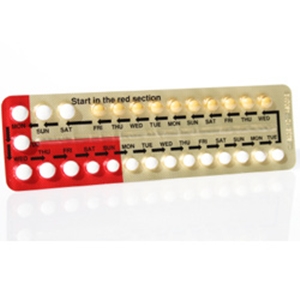
The Obama administration and its opponents are renewing the Supreme Court battle over President Barack Obama's health care law in a case that pits the religious rights of employers against the rights of women to the birth control of their choice.
Two years after the entire law survived the justices' review by a single vote, the court is hearing arguments in a religion-based challenge from family-owned companies that object to covering certain contraceptives in their health plans as part of the law's preventive care requirement.
Health plans must offer a range of services at no extra charge, including all forms of birth control for women that have been approved by federal regulators.
50 businesses suing
Some of the nearly 50 businesses that have sued over covering contraceptives object to paying for all forms of birth control. But the companies involved in the high court case are willing to cover most methods of contraception, as long as they can exclude drugs or devices that the government says may work after an egg has been fertilised.
Read: Obama and healthcare
The largest company among them, Hobby Lobby Stores Inc., and the Green family that owns it, say their "religious beliefs prohibit them from providing health coverage for contraceptive drugs and devices that end human life after conception".
Oklahoma City-based Hobby Lobby has more than 15,000 full-time employees in more than 600 crafts stores in 41 states. The Greens are evangelical Christians who also own Mardel, a Christian bookstore chain.
The other company is Conestoga Wood Specialties Corp. of East Earl, Pennsylvania, owned by a Mennonite family and employing 950 people in making wooden cabinets.
Decisions on birth control
The administration says a victory for the companies would prevent women who work for them from making decisions about birth control based on what's best for their health, not whether they can afford it. The government's supporters point to research showing that nearly one-third of women would change their contraceptive if cost were not an issue; a very effective means of birth control, the intrauterine device, can cost up to $1000.
Read: Signing up for Obamacare
One key issue before the justices is whether profit-making corporations may assert religious beliefs under the 1993 religious freedom law or the First Amendment provision guaranteeing Americans the right to believe and worship as they choose. The court could skirt that issue by finding that the individuals who own the businesses have the right to object.
Preventing implantation
The justices still would have to decide whether the birth control requirement really impinges on religious freedom, and if so, whether the government makes a persuasive case that the policy is important and is put in place in the least objectionable way possible.
The companies say they believe life begins at conception, and they oppose only birth control methods that can prevent implantation of a fertilized egg in the uterus, but not other forms of contraception. There is dispute over whether any of these contraceptives works by preventing implantation, but the administration has not raised that issue in this case.
Read more:
US court against Obama's policyObama faces choice on morning-after pill limits
Delayed Obamacare to cost billions




 Publications
Publications
 Partners
Partners










